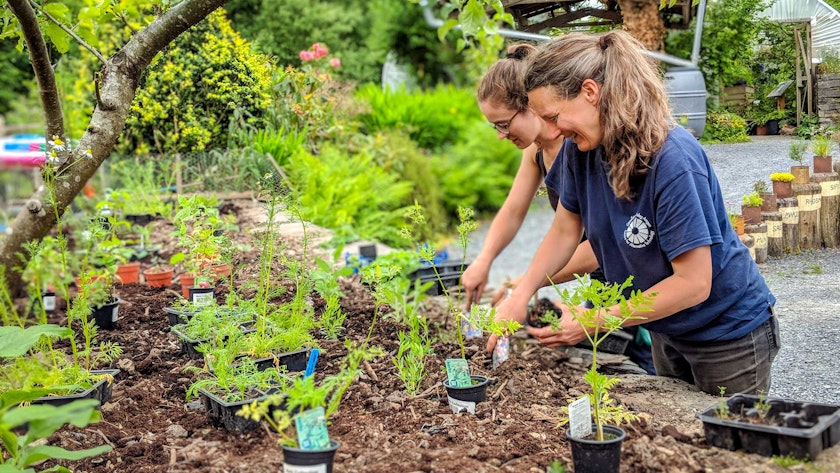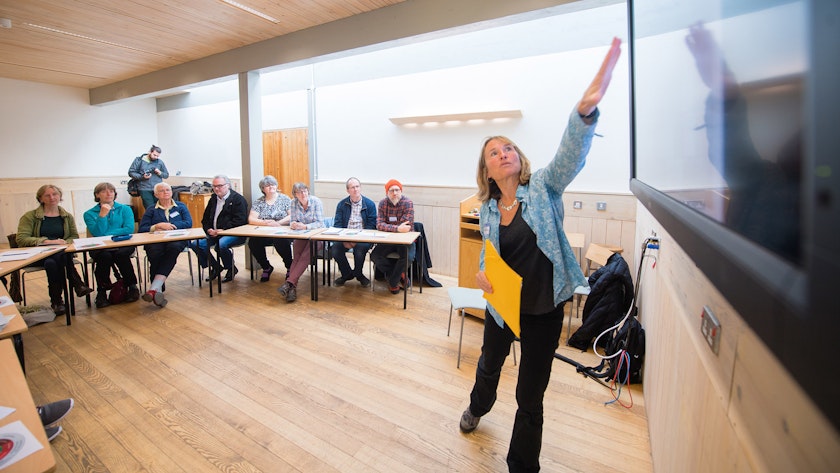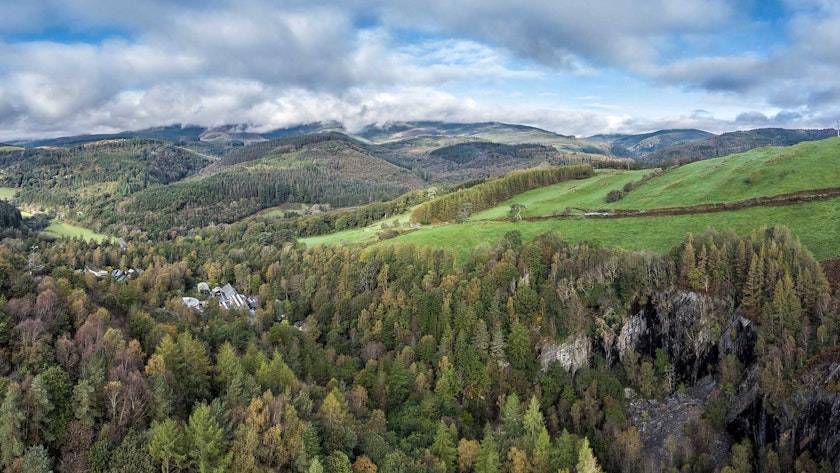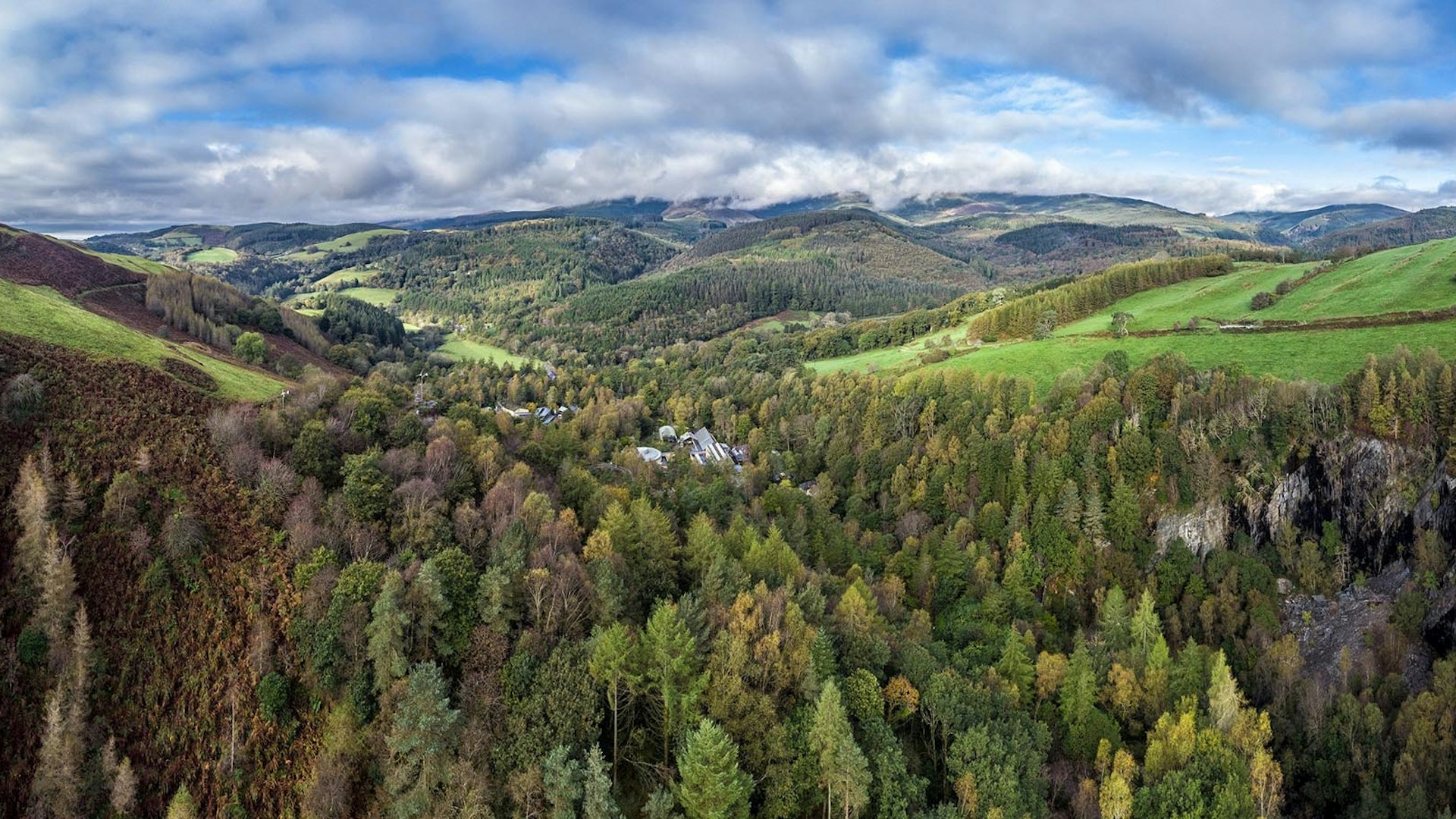For five decades, CAT has been helping people turn their compassion for the environment and humanity into action by giving them the knowledge and skills they need. Amanda Smith takes us through CAT’s educational programmes, which are reaching more and more people every year.
To achieve a future where people and nature can thrive, everyone must take action in the transition to more sustainable systems. Change is needed throughout society and at every level, which means we all need to be able to play our part.
While awareness of the need to act on the climate and biodiversity crises has grown exponentially in the last 50 years, a green skills gap remains. To help fill this gap and empower more people to get involved in environmental solutions, education continues to be an integral part of our work.
CAT has always taken an alternative approach to education – one where people learn through doing, testing creative thinking in an immersive natural environment. Feedback from those who have visited and studied with us shows this hands-on approach leaves people inspired, energised and ready to make a difference.
Over the decades, we have developed the visitor experience, the courses we offer, and the range of educational services we provide to help more people get empowered to act. From families to graduates to local councils, now everyone can learn to be a more effective changemaker at CAT.
Studying at CAT
“Studying at CAT is not like studying at any other university. CAT has been a home, a family and the greatest experience I have undertaken up to this moment in time.” – Tiziana Di Ronco, CAT graduate.
We launched our Graduate School of the Environment in 2007, offering Masters degrees in renewable energy and sustainable building. Now, each year, a diverse community of more than 200 students from across the UK and overseas comes to CAT to study a much wider range of subjects, including ecology, behaviour change, food, land use and much more.
As well as learning from our expert tutors, lecturers and international guest speakers, our students share so much with us too, bringing their own unique perspectives, experiences and ideas.

While on traditional university courses, students are usually passive learners based in a classroom environment, at CAT people are active participants and immersed in nature from day one. Our home in Mid Wales is a living laboratory where students can see experiments in sustainable living in action and contribute to their development. By working together, students learn from each other and build close relationships that often continue after the course finishes, and in many cases lead to successful business partnerships.
Our Masters in Architecture (MArch) course helps the eco-architects of the future learn about sustainable materials and approaches through practical project work. Unlike many theory-based conventional architecture courses, students present their work to other students, tutors and ‘live’ clients and bring their designs to life in dedicated ‘build weeks’. This gives them experience of navigating the challenges in sustainable building and the confidence to take their place in the professional environment.
Students from across the globe – from Ceredigion to Cambodia – now choose to study at CAT. For those unable to travel to Mid Wales, we also offer remote learning on our Master of Science (MSc) and Master of Research (MRes) courses.
This has made studying with CAT accessible to a wider range of people and expanded the diversity of our student population still further.
Welcoming university and college visits
“Our students found their visit to CAT fascinating and inspiring, with several commenting on how much they enjoyed being in an atmosphere where there were so many positive and hopeful solutions.” – Dr Nick Hughes, UCL, who brought 60 students on a visit to CAT in November last year.
It’s not just students at our Graduate School of the Environment who learn and become inspired at CAT.
Every year, we’re also joined by hundreds of students from universities and colleges across the UK and beyond. With sustainability increasingly an element of academic subjects, we host study visits and field trips from visitors exploring topics from geography, engineering and architecture to media, psychology and design.
Over the years, word has spread that CAT is the perfect place to embed and bring to life students’ learning. Our site provides people with the opportunity to get their hands dirty, digging deeper into sustainability-related topics, in a distraction-free environment where they can dedicate time and attention to their studies.
Visiting university or college groups benefit from talks from our Zero Carbon Britain team who explain systems approaches to taking climate action; tours of our site to see solutions in real life; and practical workshops to put what they’ve learned into practice.

School trips with a difference
“The last few visits we have done with CAT really helped to bring the learning to life. Our work with CAT has given the pupils a sense of purpose and understanding around the importance of climate change to them and their future too.” – Tomi Rowlands, Digital Lead, Ysgol Bro Hyddgen, Machynlleth
Since we opened the doors of CAT to visitors in the 1970s, many thousands of school children have had their first experience of a more sustainable way of living. We know this has had a lifechanging impact for many people, who have told us coming to CAT as a child shaped both their career and their worldview.
Over the decades, we’ve developed the experience we offer our younger visitors. Today, our home is the site of both memorable one-day school trips and extended stays for school groups who want to learn even more.
Young people of all ages gain new knowledge and skills at CAT, from pre-school to postgraduate level, including GCSE, A level and the Welsh Baccalaureate.
We run workshops on renewable energy, green building, growing and ecology, green living, and other aspects of sustainability. These cross a range of curriculum subjects, including science, geography, design and technology, personal and social education (PSE), and citizenship and can be taken in English or Welsh. All help young people develop key skills in literacy and maths, and emphasise problem solving.

Short courses and experience days
“The tutors were super knowledgeable and prioritised confidence-building as well as skills. This has been a life-changing week for me – I did stuff I never thought I could do.” Suzanne Oakley, short course participant
Our short courses and experience days allow people of all ages to get a taster or develop their knowledge of areas including renewable energy, environmentally friendly building techniques, ecology, woodland management and organic gardening.
From one-day visits to more in-depth week-long courses, we provide people with opportunities to learn practical skills to make changes in their own lives or at work, or simply slow down and reconnect with nature.
Our green skills training courses range from training for people who want to find out more about making their own home more energy efficient – for example by installing solar power, heat pumps and insulation – to building professionals who need to understand more sustainable ways of working – such as how to use natural materials or retrofit existing buildings sustainably. We also collaborate with colleges to create a bigger impact.

Our evolving approach
“Many thanks for the course, it has given me more ideas for tackling climate change and the Council’s action plan will be rewritten as a result.” – Carbon Literacy online course participant.
Our unique educational programmes are giving people the knowledge and skills they need to play their part in tackling the climate and biodiversity crises. By continuing to develop our approach to education, we are responding to the evolving challenges we face in building a safer, fairer, more sustainable future.
It is now clear that to achieve transformative change, we need to consider systems as a whole and design solutions that work together to enable bigger changes than would be possible by working in isolation. This approach also helps avoid duplication of effort and unforeseen side effects as much as possible.
Most recently, our Zero Carbon Britain team has been running training and innovation labs for groups of people including councils, businesses and community groups to accelerate the systems change needed. Through these participatory workshops, on subjects such as Carbon Literacy, people are co-creating their own solutions to overcoming the barriers to achieve their climate goals. We now offer online versions of many of our training and education programmes, further widening our reach.
By learning together, we can continue to build a movement for change. With our future plans in place to redevelop our visitor centre and upgrade our onsite teaching facilities as well as expanding our digital provision, we look forward to welcoming even more learners to CAT and sharing our knowledge, skills and experiences to help deliver a better future for the natural world and all of us.

About the author
Amanda is CAT’s Head of Learning – she has overseen the development of our Zero Carbon Britain training programmes, short courses and schools education work. She has over 20 years’
experience in teaching, school leadership, adult training and organisational improvement.
- Visitors Centre
- News Feed
Related Topics

Make a one-off donation

